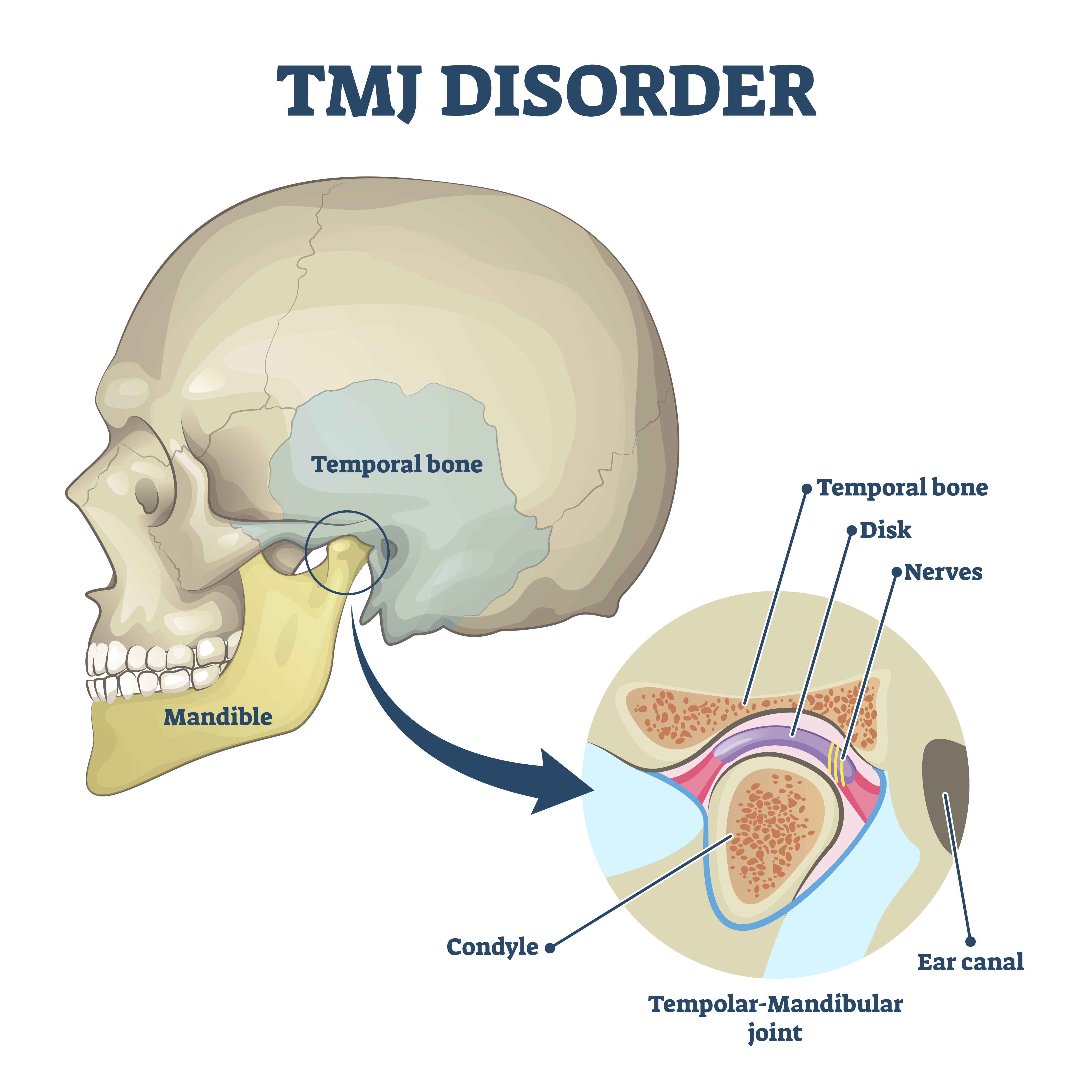
TMJ Disorders in Encino & San Fernando Valley
What is TMJ Disorder?
The temporomandibular joint (TMJs) is located in front of your ears, and is the anatomical position where your lower jaw meets your skull. Teeth grinding and/or clenching, also called bruxism, can irritate the soft tissue surrounding the joint causing the muscles, tendons, and ligaments to become inflamed.
While teeth grinding is a common contributor to of TMJ disorders, there are various other reasons that your TMJ can become irritated, such as:
- Missing teeth
- Arthritis
- Traumatic injury to the head and neck region
- Dislocation of the ball and socket of the TMJ
- Family history
- Stress
- Poor posture
- Overuse of the jaw such as excessive gum chewing

The Facts on TMJ Disorder
TMJ pain can affect nearly every aspect of your life, leaving you unable to enjoy the foods you love and restricting the activities you want to do. The severity of your symptoms can range from pain with chewing to restriction in jaw movement. TMJ disorders can cause your gums to recede, develop loose teeth, and increase your chances of a tooth fracture as well as lead to headaches, earaches, and neckaches.
TMJ disorders, also known as TMD (temporomandibular joint disorders), can be short-lived or chronic, lasting months or even years and may also be intermittent. Luckily, our treatment methods can help put an end to your pain and prevent future TMD exacerbations.
Treatment for TMJ Disorder
While your pain may be intermittent or moderate, it’s important to seek treatment to prevent further issues and resolve your pain. Dr. Simmons is an orofacial pain specialist with decades of experience, knowledge, and expertise. He’s equipped and qualified to treat complex cases so you can get the relief you need. Utilizing a holistic approach, Dr. Simmons may suggest several different methods to treat your unique condition.
One of which is with the help of various designs of an oral appliance. A customized oral appliance will prevent teeth from touching, thereby keeping your jaw open and free of painful clenching. In the most severe cases, surgery may be recommended but that’s after you’ve exhausted all the less-invasive treatment options.
